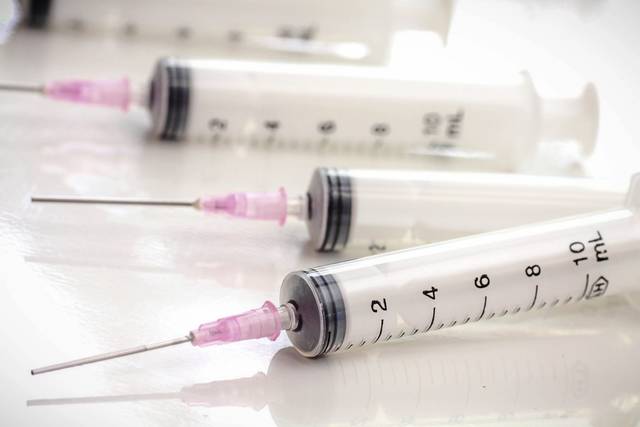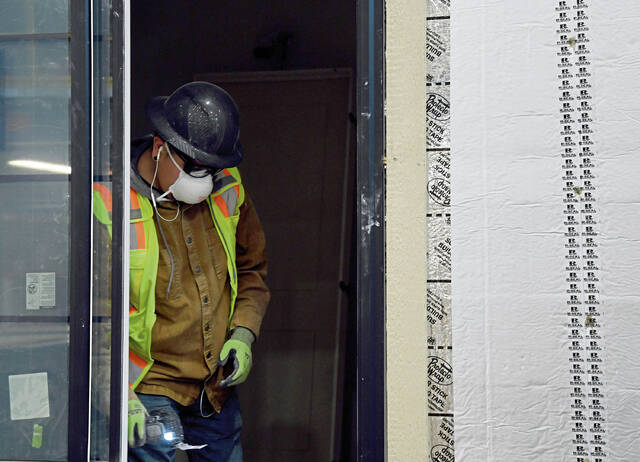Rosa had been diagnosed with endocarditis, a heart valve infection, and had undergone valve replacement surgery to repair the valve that now threatened her life. When released from the hospital, she lacked adequate housing, food and support to cope with the trauma of childhood abuse. She returned to injecting fentanyl.
Rosa’s drug use helped her cope with her trauma and her unstable housing situation. She did her best to stay warm and safe, and to find food and support — returning to drug use was an act of survival. People who use drugs may find themselves hospitalized, incarcerated or sent to treatment. However, none of these approaches adequately address the underlying factors that contribute to harmful use.
In America, we disregard the safety of people who use drugs. Criminalization and supply-side approaches rooted in archaic “drug war’ ideology have been our solution for decades. They do not work. Outdated treatment practices and a singular focus on abstinence have failed us, too.
The future lies in a risk-reduction approach that acknowledges that substance use is, and always has been, an inherent part of human existence, whether for recreation, spiritual purposes, coping or survival.
Not all substance use is harmful. It may be adaptive and lifesaving, and rarely chaotic and risky. A risk-reduction approach affirms each person’s agency and humanity and meets that person where he or she is. Person-first strategies that address underlying risk factors, including food and housing insecurity, and access to medical and psychiatric care, are critical to addressing the overdose crisis.
Current drug policy pushes people who use drugs into the shadows. An unpredictable and dangerous drug supply, lack of safe space, and inadequate housing, food and medical care fuel the current crisis and impede our collective efforts. When a person uses drugs to cope with loss, pain or trauma, a safety-first approach is lifesaving.
Rosa’s case highlights why a safety-first approach must be prioritized over abstinence-based, medicalized or criminalized approaches. Syringe services programs (SSPs) are one of the essential safety-first strategies that we know work, but Pennsylvania continues to criminalize this critical public health intervention and punish those seeking to protect their health.
One in three people who inject drugs has hepatitis C. One in three people who inject drugs uses non-sterile injection equipment. It is a federal crime to distribute sterile injection equipment, and federal funds cannot be used to purchase syringes or needles, the items that prevent the transmission of disease. While syringes are available over the counter in some pharmacies, researchers in Arizona and Indiana found that people experienced stigma from pharmacy staff. Fear of arrest and health risks resulting from the refusal of pharmacies to sell people syringes never improves community health and safety.
According to the Centers for Disease Control and Infection, syringe services programs are associated with a 50% reduction in the spread of HIV and hepatitis C. Many SSPs provide community-based interventions that link people to resources, such as housing, food, medical care and peer support. In addition to providing safe equipment for drug use, comprehensive services often include vaccinations, HIV and hepatitis testing, wound care, linkage to counseling services, and naloxone distribution. Although studies have shown no increase in crime rates in areas with syringe services programs, Pennsylvania continues to resist these community-based risk-reduction strategies.
People like Rosa deserve our care, and they need to feel human. Community-based syringe services programs, where safety comes first, and where people can access resources, is powerful medicine. SSPs promote health and safety and reduce harm in our communities.
Legislation to legalize SSPs is critical to reducing harm and ensuring a compassionate safety-first approach to the overdose crisis that took over 81,000 lives in 2020, the highest in U.S. history. Until Pennsylvania passes legislation that supports SSPs, we are complicit in harming people who use drugs, and the overdose crisis will continue to be an insurmountable challenge.
Gillian Beauchamp, M.D., a University of Pittsburgh School of Medicine graduate, is a medical toxicologist, addiction specialist and harm reduction advocate based in Allentown, Pa. Jessica Hessler is the co-founder of Elevyst, a Pittsburgh-based public health consulting firm.








